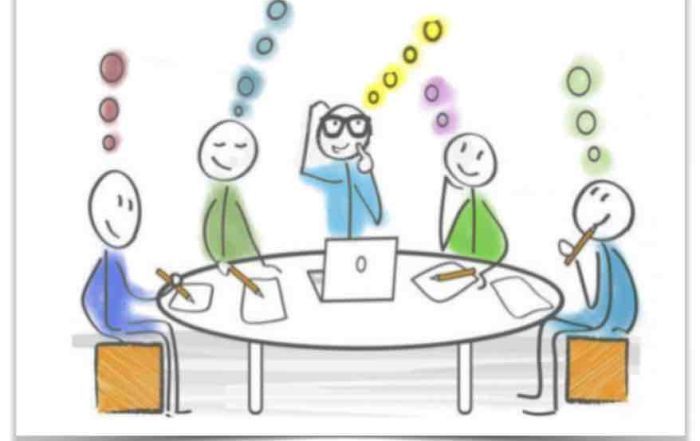In the previous blog post, we discussed about the general concept about facilitation. A few ScrumMasters and Agile Coaches wrote to inquire about some uncertainties about the choices of pronouns, when to use “We” and “You” during facilitation, while maintaining neutrality as facilitators. This is also a topic that participants to our
Certified Facilitator program ask about. it is indeed a dilemma related to neutrality concerns whether or not to say “We” and include oneself in the conversation, because of our unique role, ScrumMaster, or Agile Coach.
So when to use what? a short answer to this is – it depends. But here is the simple rule for facilitators – use “We” when referring to the Process. (If you are not familiar with the Content and Process concept in facilitation, check out our earlier blog posts.)
Some examples can be:
- “How are we doing on time?”
-
“Does this approach we’re taking seem to be working?”
- “Do we need a break?”
- …
We can use “You” when referring to the Content.
Some examples can be:
- “Let me read back what you’ve said so far.”
-
“Here are the issues in the order you ranked them.”
- “Are you satisfied that this has been discussed enough?”
- …
So to summarize, any human interactions have two dimensions – the Content and the Process, or the WHAT and HOW. In a specific facilitation context and in that moment, we want to first position ourselves properly into the right role – are we the content leaders, or are we the process leaders?
We can also extend this topic more, to elevate facilitation. What to use truly depends on the context, formality, and the relationship between the facilitator and the participants. Here are common ways in which these pronouns are typically used:

We want to create a sense of inclusivity and shared responsibility. It implies a collective effort and can foster a feeling of unity. It indicates togetherness – the facilitator and the participants are on the same side, and they share and understand their feelings and experience.
In the context of a Scrum team retrospective session, a ScrumMaster will certainly want to use:
- “What are some possible areas we can look into to improve our upcoming sprints?”
- “How can we reduce technical dependency?”
We want to highlight team identity, in the context of a team, organization, or community to emphasize collective involvement.
- “How do we feel about our team working agreement?”
We might also want to use “We” for authoritative inclusion. In certain situations, “we” is used authoritatively to include both the facilitator and the participants in a shared experience or situation.
Some other examples can be:
During retrospective sessions, team members seem to blame other teams and the context. As an agile coach, we may say “What are the different areas we have control over?”
We might also want to use “We” as a way for us to take lesser responsibilities for the situation. This helps reduce dependencies on us, and gives team room and space to grow, We also want to promote team work and shared responsibilities.
“What are the first steps we can experiment?”
We can use “One” to refer to people in a general sense rather than a specific individual.
“One should consider all the options before making a decision.”
We can also use “One”, while maintaining an impersonal or neutral tone, to direct reference to the speaker or the audience.
“One might find this approach helpful in various situations.”
We can also use “One” to make universal statements that apply broadly.
- “One cannot predict the future with certainty.
- “One can feel overwhelmed if there are too many parallel work happening at the same time.”
Facilitation is special and it is even more special for us supporting teams and organizations in the agile context.
Follow
us on LinkedIn to get up to date blogs and latest learning opportunities. If you love flexibility, join us from our online learning portal and kick off your journey today!


